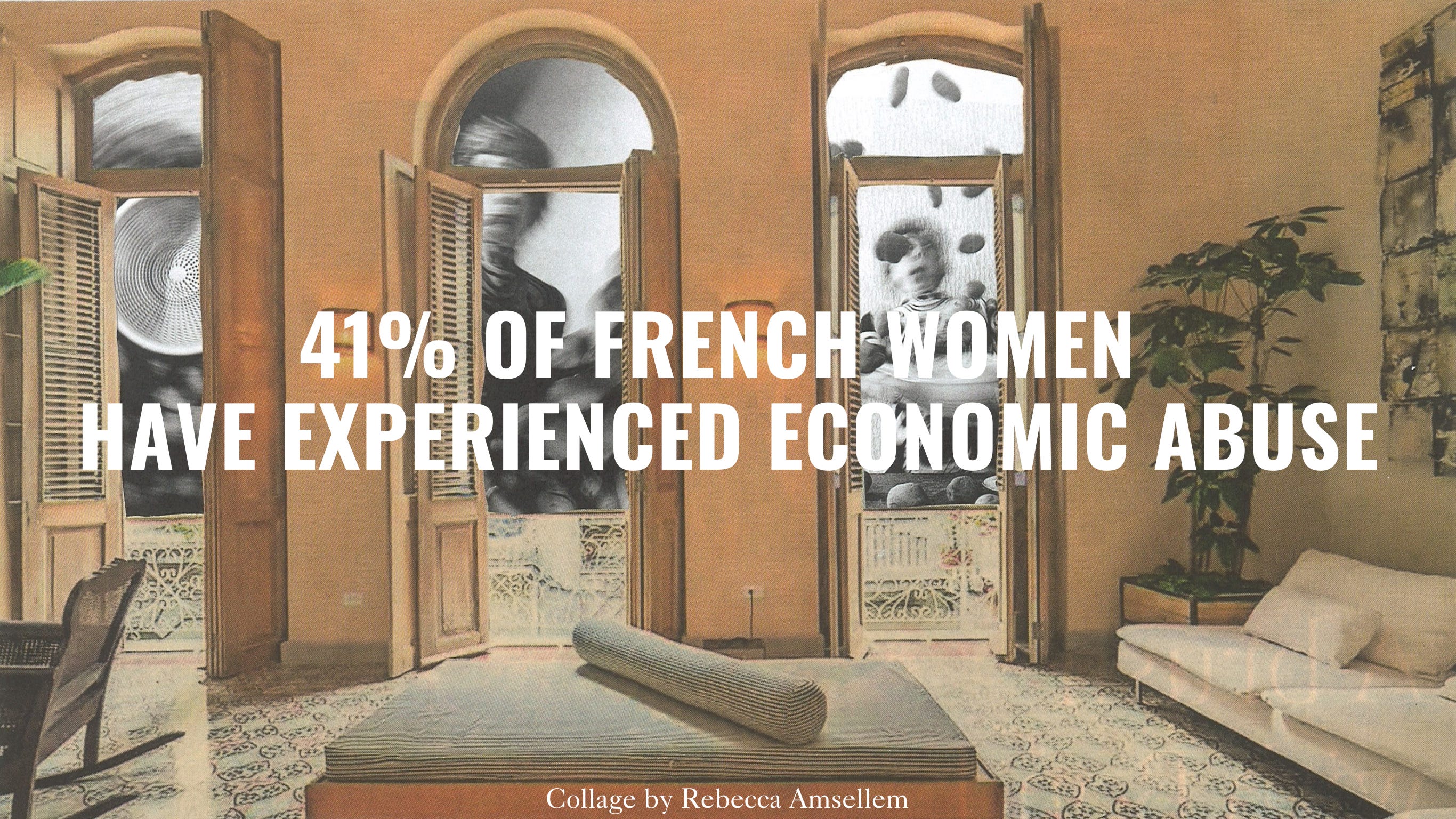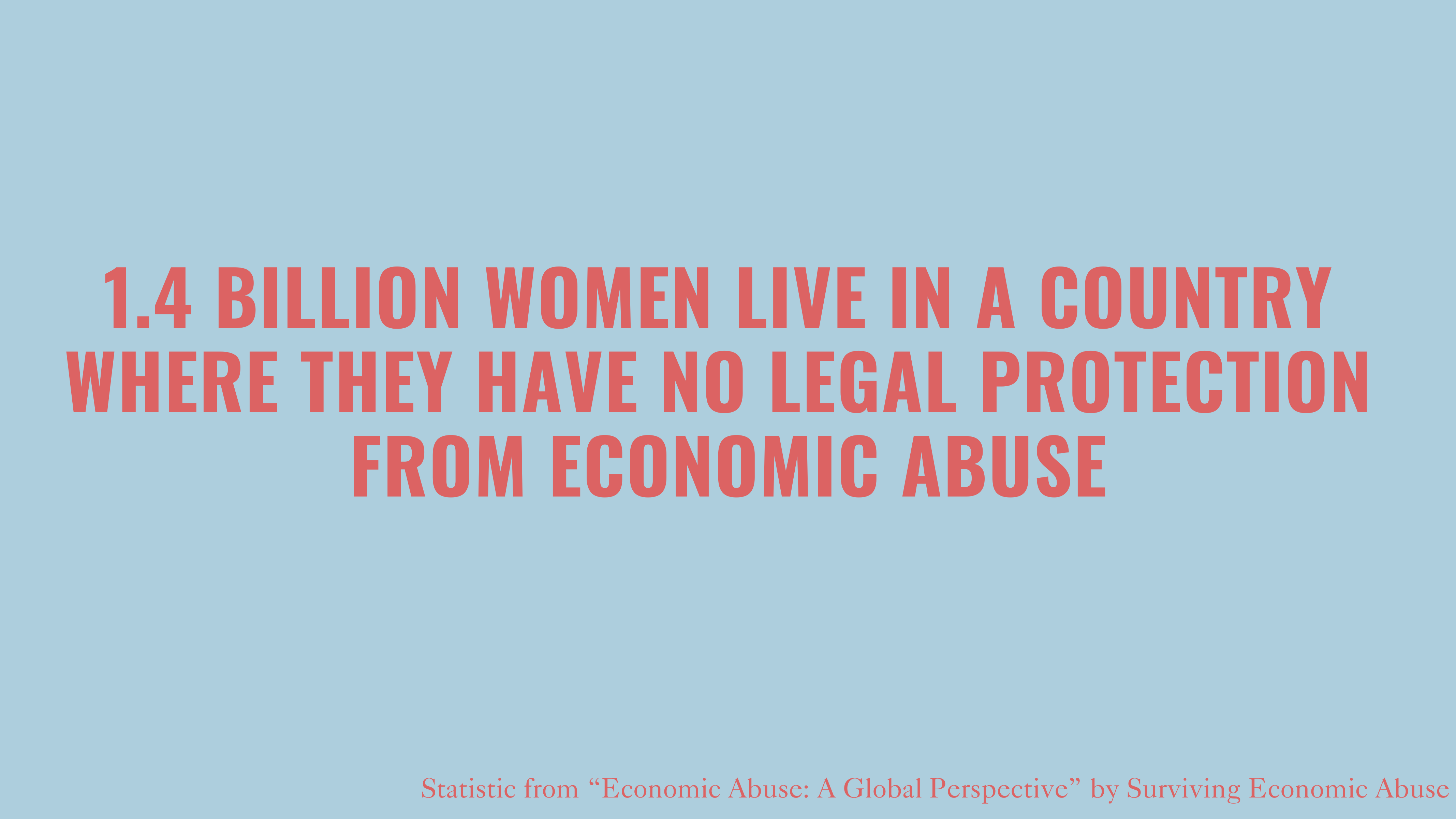Economic abuse — the hidden side of domestic violence
Here’s how to recognise the signs
Welcome to the Impact newsletter, your guide to the feminist issues that matter most, all around the world. This week, to mark the launch of Gloria Media’s campaign for pay equality, we are turning the spotlight on the issue of economic abuse.
Short on time? Here’s a brief summary of today’s newsletter:
- 💶 Our recent survey of French women found that 41% of women have experienced economic abuse at some point in their lives.
- ⚖️ Around the world, 1.4 billion women have no legal protection from economic abuse.
- 📣 Gloria Media is launching an awareness-raising campaign about this little understood form of domestic violence as part of Les Glorieuses’ annual equal pay movement.
Read on to learn more. And if you want to be up-to-date on feminism worldwide, follow us on Instagram and LinkedIn.
Has your partner ever taken money out of your bank account without your permission? Have they objected to you getting a job that pays more than theirs, or insisted you work part-time? Have they incurred joint debts without informing you, or refused to pay their fair share of joint expenses? If so, you could be a victim of economic abuse. And you are not alone.
Economic abuse is the least understood form of intimate partner violence. Because of this, statistics can be hard to come by, but the data we have is concerning. In a new survey commissioned by Impact’s sister newsletter, Les Glorieuses, the opinion polling company Ifop found that 41% of French women surveyed had experienced at least one form of economic violence in their lifetimes, while 23% experienced it at the hands of their current partner.
It is the canary in the coalmine for other forms of domestic abuse. The Les Glorieuses/Ifop survey found that 99% of women who had experienced economic abuse from a partner had also suffered other types of domestic violence — verbal, physical and psychological — the majority of them at the same time.

Economic abuse happens when someone seeks to control their partner or ex’s money and the things money can buy. Abusers “exploit existing economic dependence, or seek to create economic instability” according to the UK charity Surviving Economic Abuse. This can involve stealing money directly, limiting a victim’s ability to earn money, or dictating how they spend it. As with any form of domestic violence, the ultimate goal is the loss of a victim’s personal autonomy. It is part of coercive control – when someone repeatedly hurts, scares or isolates another person to control them.
In her book on domestic violence, See What You Made Me Do, journalist Jess Hill describes three types of perpetrators of economic abuse: controllers, exploiters and schemers. According to Hill, controllers and exploiters use economic abuse to get their way in a relationship by dominating financial decisions, while schemers enter a relationship with the specific intention of “stripping the woman of her money and assets”. All can have a devastating effect on their partners and trap them in relationships that may also be physically or psychologically violent.
A lack of economic independence is one of the primary reasons women give for staying with an abusive partner. One of the women Hill spoke to described being “scared witless” when she left her relationship with just $1.57 in her bank account. Economic abuse can continue after a relationship has ended if a partner refuses to pay child support or pursues a victim through the court system, forcing them to pay their own costs.
Les Glorieuses, our sister newsletter, has launched a French-language platform on economic abuse as part of its annual equal pay campaign. You can see it here.
While economic abuse can happen within any type of relationship, “women in heterosexual relationships are disproportionately affected,” according to the European Institute for Gender Equality. This is because, like gender-based violence in general, economic abuse is “both a cause and a consequence of gender inequality”. This does not mean queer couples are immune from the problem, with gay, lesbian and bisexual all reporting significant levels of economic abuse in studies from the UK, US, Canada and Australia.
Economic abuse is also the least likely form of domestic violence to be dealt with in national legislation. A report by Surviving Economic Abuse found that half the world’s countries lack any form of policy on economic abuse within relationships, leaving almost 1.4 billion women worldwide with no protection in the face of this violence.
Governments can be partners in economic abuse. This is no different from the way states can unwittingly collaborate with the perpetrators of physical violence — in our reporting about Denmark’s asylum system earlier this year, my colleagues and I found that refugee women could be forced to stay with a violent partner or risk losing right to live in their adopted country because of visa rules. Similarly, when a woman cannot inherit property in the same way as a man, as is the case in Morocco, or does not have equal authority over marital assets, as in the Philippines, we can understand this as economic abuse perpetrated by the state — these policies condemn women to financial reliance on male relatives, even if those relatives are physically or psychologically violent.

Equality in the eyes of the law is not sufficient to protect women from economic abuse. France is one of 14 countries in the world to achieve a perfect score on the Women, Business and the Law index, which measures barriers to women’s economic opportunity around the world. Yet the absence of discrimination in government policy has not created a situation where women are free of economic abuse, as the findings of our survey show.
This is because inequality is a major factor in cases of economic abuse, and women in France are not equal to men (indeed, there is no country in the world where this is the case). The findings of the Les Glorieuses/Ifop survey show that a woman is twice as likely to be a victim of economic abuse if she earns significantly less than her partner.
Closing the gender pay gap will not fix economic abuse on its own – data from the world’s most gender-equal countries including Sweden, Finland and Denmark indicates that domestic violence and economic abuse do not disappear when women are closer to earning the same as men. But there is no doubt that financial precariousness makes it harder to leave an abusive partner. As Hill writes, “violence is directly compounded by poverty”. Pay equality can thus be seen as an essential step along the way to a future free of economic violence for all.
If intimate partner violence is one of society’s hidden ills, economic abuse lies even further in the shadows. We still do not understand enough about this form of domestic abuse, but its consequences are all too clear – they are there in the victims who leave violent relationships with nothing, they are there in those who remain in dangerous situations because they can’t afford to leave.
If you are worried that you or someone in your life might be experiencing economic violence, Gloria Media has created this barometer of abuse to help people identify unhealthy dynamics within a relationship. Click to enlarge the image below.

Need help?
If your partner or former partner controls how you earn or spend money, or intervenes in other areas of your life including housing, food and employment, you could be a victim of economic abuse. Here’s what you can do:
💡 First, read these words: it’s not your fault. And you’re not alone.
💡 Next, talk about the problem with your family, friends or colleagues.
💡 You can also talk to someone at your bank to help you regain control of your money.
☎️ Economic violence rarely occurs in isolation – if you are a victim of domestic violence and you are in immediate danger, call the police.
📚More resources can be found at survivingeconomicabuse.org
Merci!
Thanks to the generous support of our readers, we reached our fundraising target of €1000. Thank you to everyone who contributed, and thank you especially for the kind words of support many of you sent. Your donations will go towards more ambitious feminist reporting in the months to come.